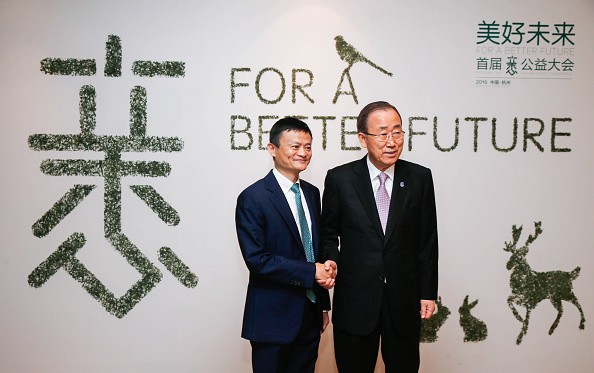On Saturday, Alibaba Foundation teamed up with non-government organizations during a meeting on water resource protection and green development. The meeting was held in Hangzhou in east China’s Zhejiang Province.
The alliance includes Alibaba Foundation, Friends of Nature, Institute of Public and Environmental Affairs, Green Hunan and Beijing Green Foundation as its members.
The building of a river-guarding center was also announced by Alibaba Foundation and Green Hunan, an environmental organization based in Hunan Province.
The plan includes 2,000 people acting as “folk river chiefs” in the Yangtze River valley in the span of three years. The folk river chiefs will be assigned to report issues including stinky waters. They are also expected to take part of water resource protection efforts.
Jin Jianhang of the Alibaba Foundation said that the public participation in environmental protection should be encouraged.
“We should promote the disclosure of environmental information and make it visual so that the public at any time can focus on the environmental issues,” Jin said.
According to Fang Min, director of Zhejiang provincial environmental protection department, the whole society must take part in environmental protection for it to be successful
Efforts such as cross-sector cooperation and unified movements can help in forming a new pattern for environmental protection. The pattern, headed by the government, with coordination of various departments, participation of all social sectors and public supervision, can yield win-win results, Fang said.
“We hope to work with more organizations to promote the rule of law in the field of environment,” Beijing Friends of Nature Foundation secretary-general Zhang Boju said.
The Chinese government has started appointing “river chiefs” in Dec. 2016. The chiefs’ responsibilities include resource protection, pollution prevention and control, and ecological restoration. Their performance will be measured and they will answer for environmental damage found in bodies of water assigned to them.
The developmental plan for the Yangtze River economic belt has made environmental protection and restoration as its top priority. The economic belt which covers about 20 percent of China’s land has over 600 million population.
As of today, there are above 2,000 non-governmental environmental protection organizations across China, according to China Environmental Organization Map statistics.
Alibaba Foundation hopes to contribute to the country’s water resource protection.




























